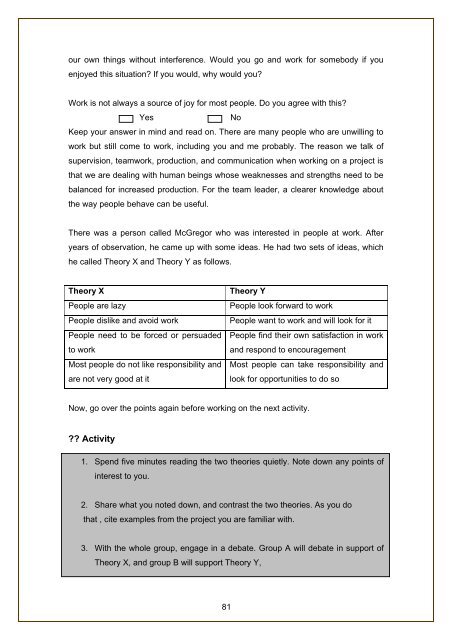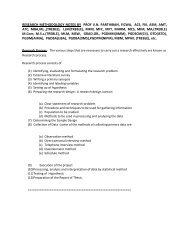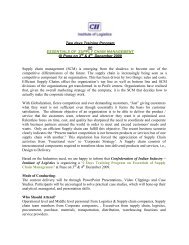successful project management - Commonwealth of Learning
successful project management - Commonwealth of Learning
successful project management - Commonwealth of Learning
You also want an ePaper? Increase the reach of your titles
YUMPU automatically turns print PDFs into web optimized ePapers that Google loves.
our own things without interference. Would you go and work for somebody if you<br />
enjoyed this situation? If you would, why would you?<br />
Work is not always a source <strong>of</strong> joy for most people. Do you agree with this?<br />
Yes<br />
No<br />
Keep your answer in mind and read on. There are many people who are unwilling to<br />
work but still come to work, including you and me probably. The reason we talk <strong>of</strong><br />
supervision, teamwork, production, and communication when working on a <strong>project</strong> is<br />
that we are dealing with human beings whose weaknesses and strengths need to be<br />
balanced for increased production. For the team leader, a clearer knowledge about<br />
the way people behave can be useful.<br />
There was a person called McGregor who was interested in people at work. After<br />
years <strong>of</strong> observation, he came up with some ideas. He had two sets <strong>of</strong> ideas, which<br />
he called Theory X and Theory Y as follows.<br />
Theory X<br />
People are lazy<br />
People dislike and avoid work<br />
People need to be forced or persuaded<br />
to work<br />
Most people do not like responsibility and<br />
are not very good at it<br />
Theory Y<br />
People look forward to work<br />
People want to work and will look for it<br />
People find their own satisfaction in work<br />
and respond to encouragement<br />
Most people can take responsibility and<br />
look for opportunities to do so<br />
Now, go over the points again before working on the next activity.<br />
?? Activity<br />
1. Spend five minutes reading the two theories quietly. Note down any points <strong>of</strong><br />
interest to you.<br />
2. Share what you noted down, and contrast the two theories. As you do<br />
that , cite examples from the <strong>project</strong> you are familiar with.<br />
3. With the whole group, engage in a debate. Group A will debate in support <strong>of</strong><br />
Theory X, and group B will support Theory Y,<br />
81
















